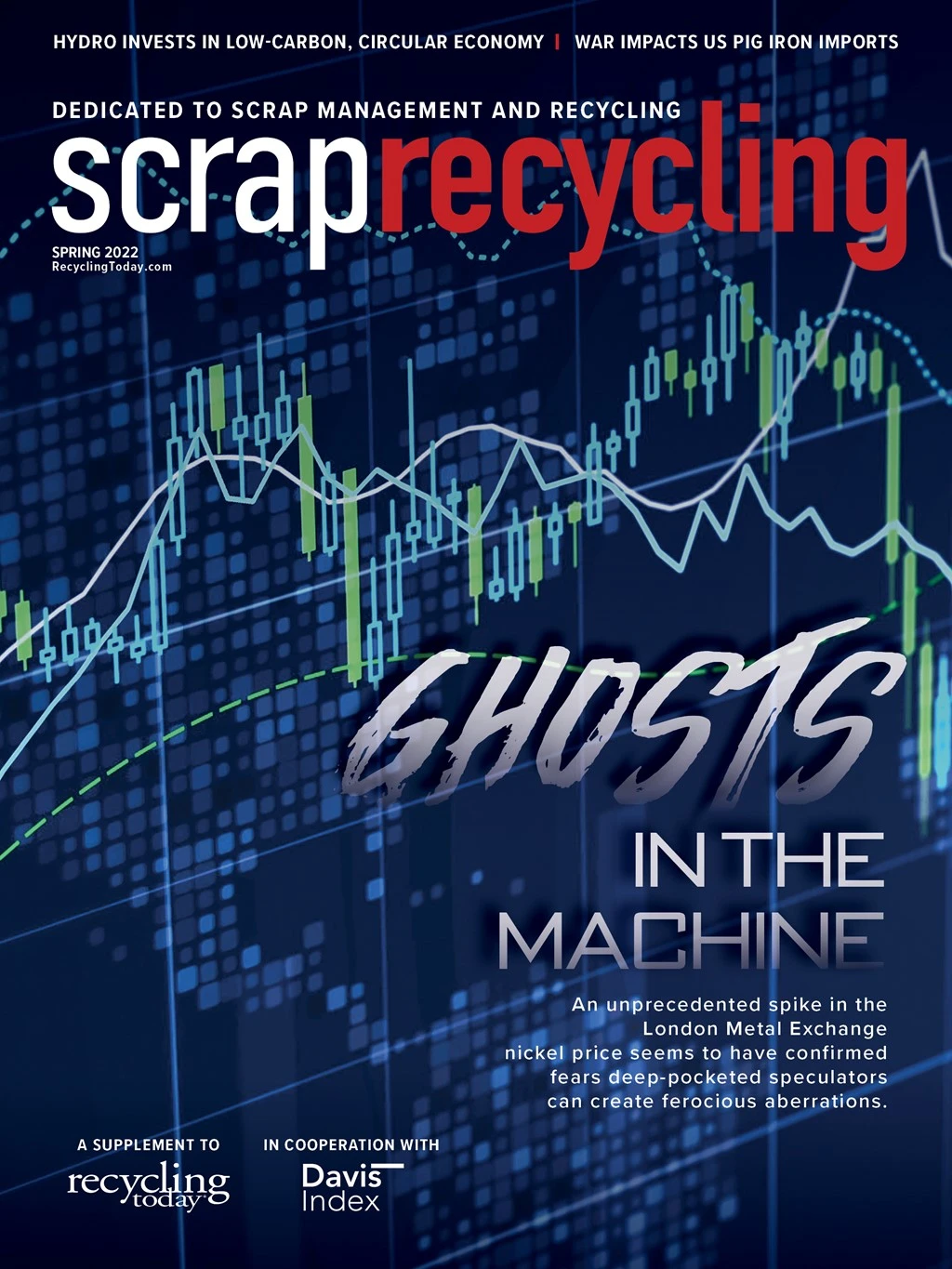
Bob Stein was born into a family that ran a scrap processing business in Vancouver, British Columbia. In some ways following in the steps of his father and grandfather and in other ways departing from them, his 42-year career as a metals trader involved increasing nonferrous trading responsibilities and steady international business involvement.
In December 2015, Stein retired as senior vice president of nonferrous marketing and trading at St. Louis-based Alter Trading Co. after more than 10 years with that firm. He spent the prior three decades in positions of increasing responsibility for three other metals trading and processing companies. His career allowed him to work from financial centers including New York, London and Tokyo and later to represent his industry as an officer of the Brussels-based Bureau of International Recycling.
Last year, Stein talked with Recycling Today Media Group Senior Editor Brian Taylor, reviewing his career and offering his perspective on aspects of the scrap metals industry that have changed in the last four decades and those that have endured.
Q: You spent about 30 years working in family businesses, so that must be where you were most comfortable?
A: I think that family businesses that are good, honest operators in all senses of that word attracted me.
I came from a family business also with high ethical standards and, as far as I could ever find out, just one set of books. I mean, it was pounded into me as a kid that this was the way we ran our business. And I think that attracted me, certainly.
I had the good fortune and the wherewithal to hang my hat with good, honest people. … And they have the ability [and] should have the ability to buy scrap on the street and sell it to a furnace to finance it to grow their businesses to become more diverse than perhaps they had been in the past.
Q: Can you identify one or two key pieces of advice or guidance you would give to a young person who’s just entering the scrap industry or even the international business arena overall?
A: I’ve had the opportunity to have younger people work with me—a couple of whom have become very successful.
I think, first of all, a straightforward, honest approach to business—whether you’re buying or selling or engaging with your customers, whether you’re in the physical business or the trading business—and getting to make them understand that you have a concern for what they do, how they do it and what you can do to influence them to do business with you. I think that it’s important just to state the facts: Here’s who we are, what we do, what we can do for you and to know them on a level that permeates the obvious. … Get to know what they do, what they’re doing with your scrap. I see what’s good for them, but often more important [is] what’s bad for them. …
For younger people, I would say, hang your hat with good, honest employers or be one yourself. And if it’s a family business, I would hope that your family has instilled those values in you.
But understanding it’s so important to go and visit the people that are using your scrap. And if that’s 20 miles away, great. If it’s financially feasible and it’s 8,000 miles away, great. And be attuned to the cultural differences between yours and theirs. Get to know them, especially on the international level, get to know them personally. Personalize the business. They are as interested in you as you are in them. … [B]ecause when there is an issue, it really helps to get a solution that we’re in this together. We know each other’s families— and I don’t mean it on a phony or superficial basis, but it seems a very important aspect.
The other thing I would caution … is that oceans don’t create a safety net when it comes to your receivables. … There’s still a due diligence that is absolutely necessary in credit, overseas credit, how to protect yourself, how to make certain that there’s performance on all aspects of the contract. And to utilize outside sources when you need to get information about customers. …
In terms of international trade, understand the law. There are aspects of American law that disallow certain activities, including bribing foreign officials, which can be as much as a nice dinner somewhere. … Understand what money laundering is, so you don’t get sucked into doing it.
There’s nuance to this business, especially on the international side, and a lot of that stuff kept me up at night, for sure.
Get curated news on YOUR industry.
Enter your email to receive our newsletters.

Explore the Spring 2022 Scrap Recycling Issue
Check out more from this issue and find your next story to read.
Latest from Recycling Today
- Toppoint Holdings expands chassis fleet
- Lego creates miniature tire recycling market
- Lux Research webinar examines chemical recycling timetables
- Plastics producer tracks pulse of wire recycling market
- Republic Services, Blue Polymers open Indianapolis recycling complex
- Altilium produces EV battery cells using recycled materials
- Brightmark enters subsidiaries of Indiana recycling facility into Chapter 11
- Freepoint Eco-Systems receives $50M loan for plastics recycling facility





